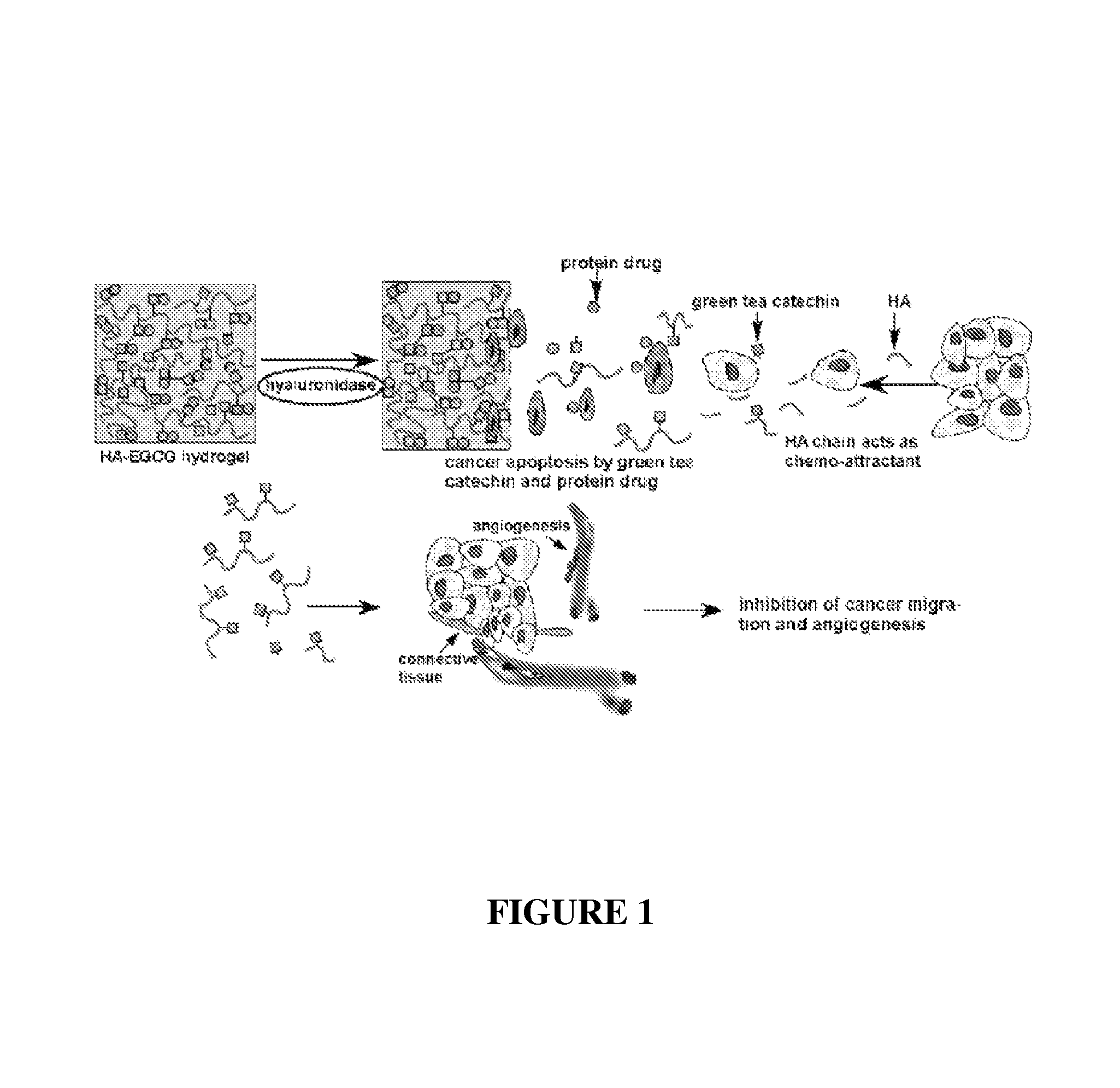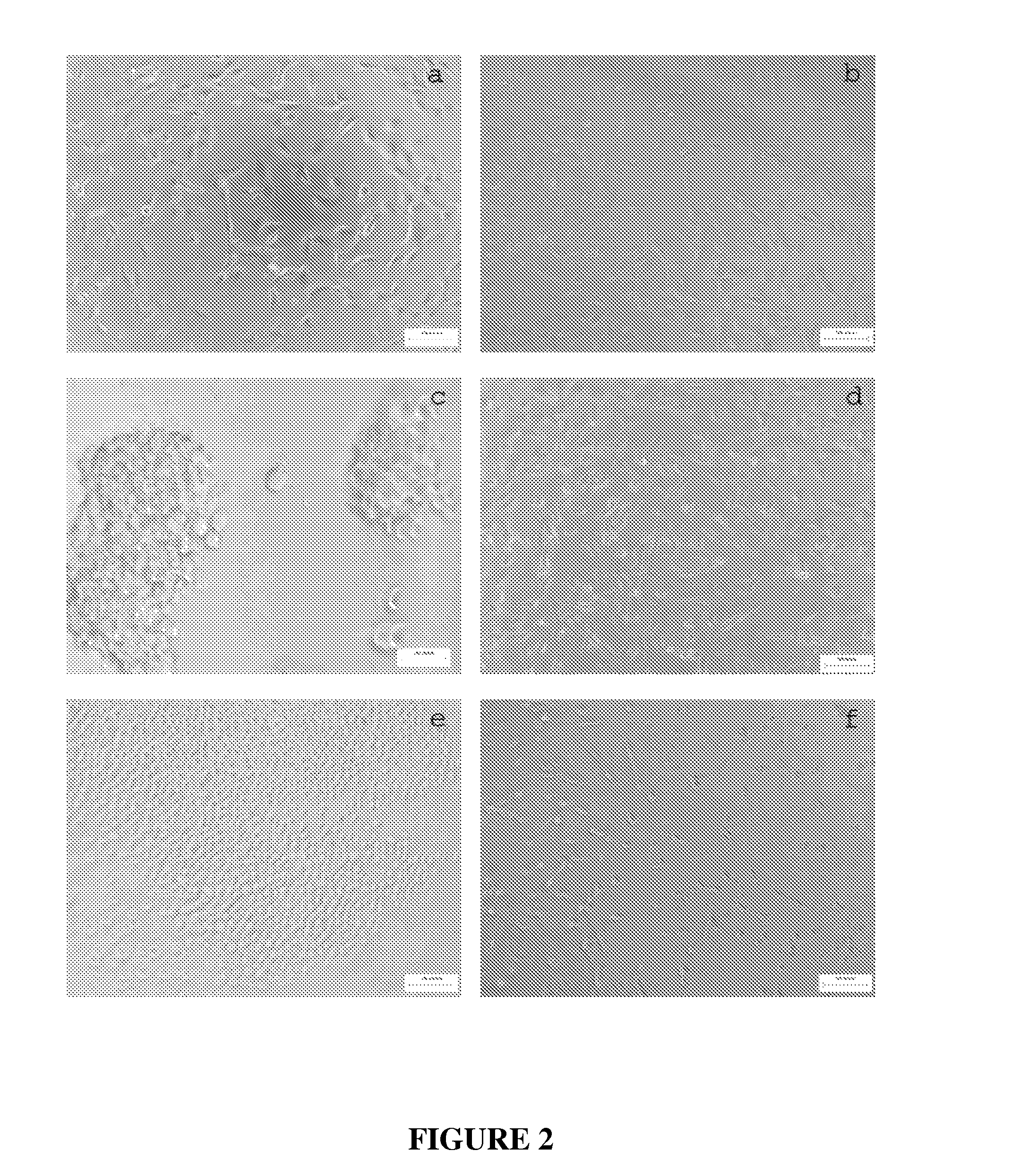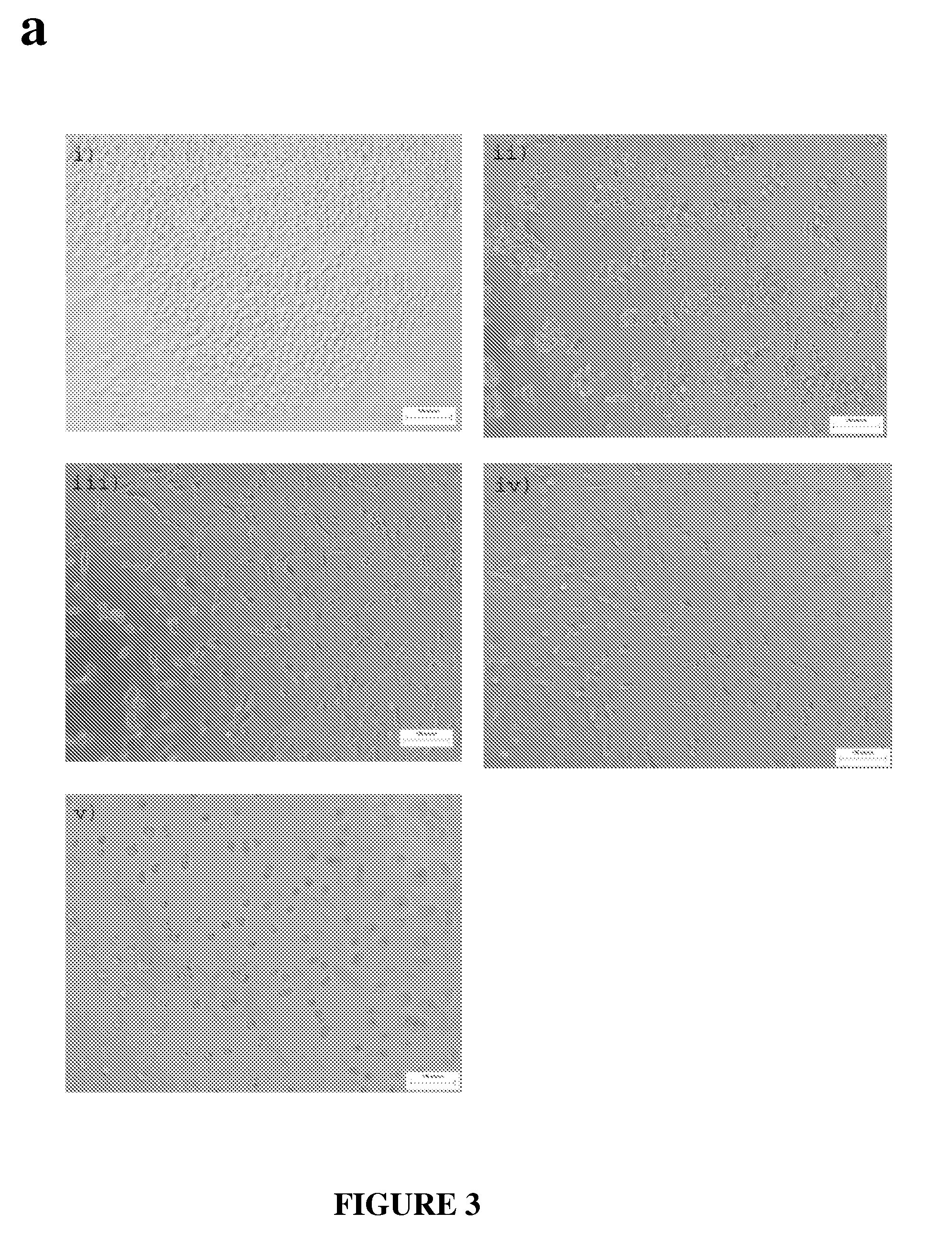Cell-adhesive, enzymatically crosslinked flavonoid hydrogels and methods for making same
a flavonoid hydrogel and cell-adhesive technology, applied in the field of hydrogels, can solve the problems of limited activity half-life of flavonoids, inability to achieve a therapeutic level of this compound in the body, and inability to achieve high micromolar concentrations of egcg practicably, so as to reduce or prevent the proliferation of cancer cells, the effect of increasing the anti-cancer effect of the hydrogel
- Summary
- Abstract
- Description
- Claims
- Application Information
AI Technical Summary
Benefits of technology
Problems solved by technology
Method used
Image
Examples
example 1
[0180]Materials and Methods
[0181]Materials: Hyaluronic acid (HA, 90 KDa) was kindly donated by Chisso Corporation (Tokyo, Japan). 1-Ethyl-3-(3-dimethylaminopropyl)-carbodiimide hydrochloride (EDC.HCl) and N-hydroxysuccinimide (NHS) was purchased from Sigma-Aldrich (Singapore). Hydrogen peroxide (H2O2) was obtained from Lancaster. Horseradish peroxidase (HRP, 100 units / mg) was purchased from Wako Pure Chemical Industries (Japan). DMEM media was obtained from Sigma-Aldrich (Singapore). 4′,6-Diamidino-2-phenylindole, dihydrochloride (DAPI), and cell culture supplements were obtained from Gibco (Invitrogen Singapore). Fetal bovine serum (FBS) was purchased from Hyclone (Research Instrument, Singapore). Penicillin and streptomycin were obtained from JRH biosciences (Singapore). AlamarBlue® was purchased from TREK Diagnostic Systems (England). Other general use chemicals were purchased from Sigma-Aldrich (Singapore). BD BioCoat Matrigel™ invasion chambers and cell culture inserts were pur...
PUM
| Property | Measurement | Unit |
|---|---|---|
| concentration | aaaaa | aaaaa |
| concentration | aaaaa | aaaaa |
| pH | aaaaa | aaaaa |
Abstract
Description
Claims
Application Information
 Login to View More
Login to View More - R&D
- Intellectual Property
- Life Sciences
- Materials
- Tech Scout
- Unparalleled Data Quality
- Higher Quality Content
- 60% Fewer Hallucinations
Browse by: Latest US Patents, China's latest patents, Technical Efficacy Thesaurus, Application Domain, Technology Topic, Popular Technical Reports.
© 2025 PatSnap. All rights reserved.Legal|Privacy policy|Modern Slavery Act Transparency Statement|Sitemap|About US| Contact US: help@patsnap.com



